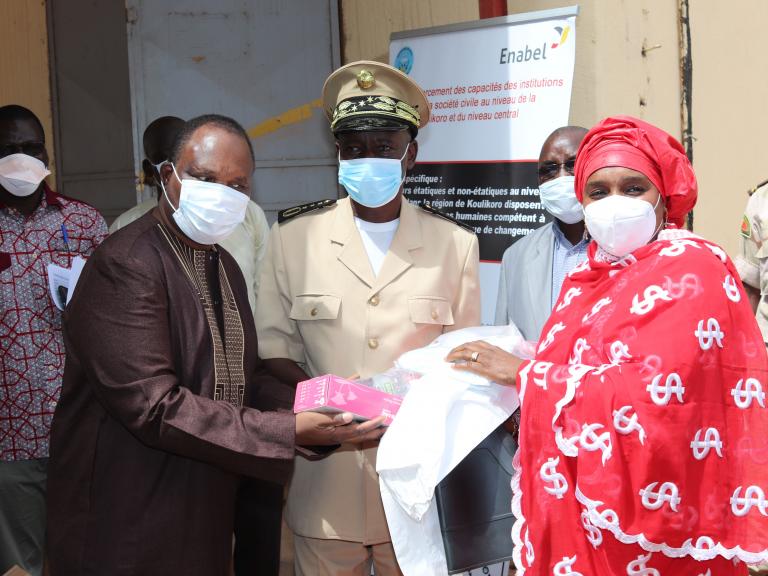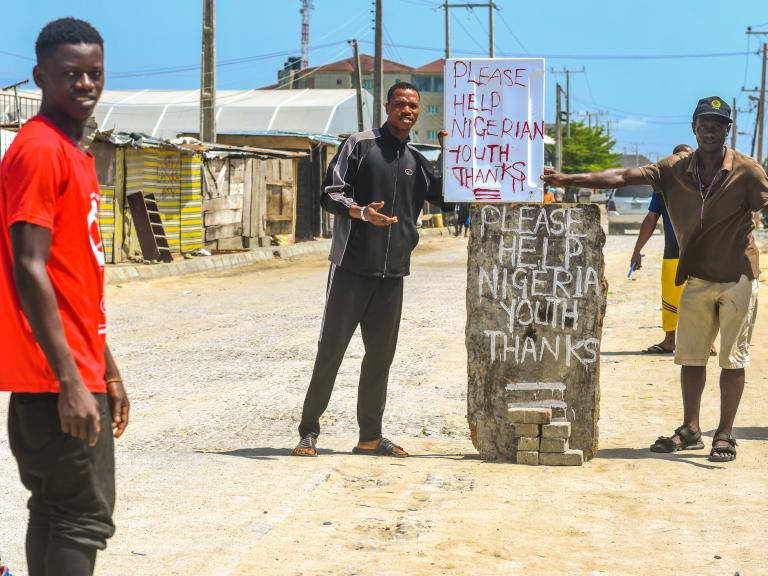-
Last updated on
Team Chennai (before the corona crisis)
The region covered by the Belgian consulate-general in Chennai (South India) is quite vast. After all, it contains 6 states, each roughly the size of France or Germany. Besides mega-cities like Bangalore and Chennai, there are also a great many tourist locations: the lovely backwaters of Kerala, the beaches of Kerala, Tamil Nadu and Karnataka, as well as many temple cities.
And these attract Belgian tourists too. Others have family here or are staying temporarily for work. There are student exchanges and a number of people are working as volunteers for an NGO. There are also Indians living in Belgium who are now visiting their families. Finally, there are 250 Belgians registered at the consulate-general who live and work here permanently, including in South India's IT and technology hubs.
A number of Belgians come here to meditate or for health reasons. After all, South India is a well-developed part of the country and there is high-quality healthcare available. It also offers courses of health treatment based on Ayurveda, an ancient Indian remedy. People come from all over the world for this.

The lovely backwaters of Kerala. © iStock
Lockdown
But suddenly the infamous coronavirus struck here too and a lockdown was announced. We had to keep a distance from each other and were required to wear a face mask. Public transported was also restricted in most regions.
For the Belgian travellers present, this was naturally quite frightening. In the middle of their stay, they had been confronted with measures such as mandatory medical tests and quarantines. For many, there was now little point in staying here any longer. But then they needed a return flight and some had to reach an airport from remote areas. That would be like trying to reach Zaventem from Southern Italy in a country in lockdown.
So we did everything we could at the consulate-general to guide them safely away and arrange a flight for them.
Return flights
We contacted the stranded Belgian travellers as soon as the Indian authorities announced the lockdown. After all, travellers are in the weakest position as they have no family or network here. We used Travellers Online for this, a database from the FPS Foreign Affairs in which travelling Belgians can register themselves. Some stranded Belgians also called or e-mailed us themselves. In total, we got over 250 requests for consular support.
Then it was time to find them some flights. Just before the lockdown, we had already been able to help over 80 Belgians with commercial flights. But from 24 March, we were using return flights from a range of European countries. To this end, we submitted lists of candidates for the various flights to the EU delegation in New Delhi. We were also able to arrange a number of flights via other European consulates-general in the region we cover. In this way we could repatriate around 90 Belgians from 7 different airports.

Dhivviaa Ramakrishnan
Laissez-passer
But then the Belgians still needed to get to the airports! And this is in a situation where internal borders between states are closed and there are checkpoints everywhere. They had to find transport, a taxi for example, sometimes to take a trip through several states at night. And they needed authorisation to pass through state borders.
We were able to be of service here as the consulate-general too. We issued a “laissez-passer” and provided a transit pass via the local authorities, as well as the necessary permit from the Indian Ministry of Foreign Affairs. In the rare event that a Belgian was detained at a checkpoint, we consulted with the local authorities.
We would like to emphasise that we are highly satisfied with the collaboration with the local authorities. They were available at any time and often called or e-mailed us until late in the evening to report that they had found a solution. We felt that the Belgians were in good hands with them. Sometimes they even organised the transport to the airport for the Belgians themselves!
From home
Because we usually could not be “in the field” ourselves. The lockdown was too strict for that and the region we cover – about half the surface area of Europe – was too large. We did everything from the consulate-general, or in fact from home, over the phone, using e-mail or WhatsApp. Indeed, strict “corona measures” were and are in force at the consulate-general too. Except for the consul-general, the preference is for the staff to stay at home. If we do have to be at the office, we ensure there is only ever one person at a time, besides the consul-general.
Visits are only possible by appointment and if there is no other way. If there are Belgians who cannot reach us due to the lockdown, we arrange for authorisation via the local authorities. We do not accept any forms or documents without using hand gel.
In fact, we were already taking precautionary measures in early March, i.e. before the lockdown. We bought hand gel, face masks, gloves and special cleaning equipment. Posters were put up about hand hygiene. Our doctor kept us well-informed about prevention and what to do in the case of infection.

Shruthi George
Team spirit
These were some pretty tense times. Our communication skills and basic knowledge of searching for flights were put to good use. But our team spirit was also key to our success. Our colleague Swathi Balasubramanian, for example, had worked for an airline company before. That meant we were able to fall back on a number of useful contacts. Meanwhile, Geetha Mahendran ensured that our supplies and infrastructure remained up to scratch.
These were also busy times, particularly in the first 5 weeks: a 9-to-5 rhythm would not suffice. There were often long evenings, and weekend work was unavoidable. We just had to be available for the Belgians. But once there were fewer repatriation flights, the workload dropped too.
Most of the Belgians who wanted to return now have. But some of them, who had initially reported that they wanted to return, are now hesitating. Nonetheless, we are still keeping them informed of any new possibilities for a flight too. The decision is then up to them. They know they can always count on our full support.
Listening ear
We can certainly look back on our work with satisfaction: we were able to help the Belgians well. Some of them responded quite fearfully and were in a panic. After all, there were suddenly a lot of unknowns. But we always offered them realistic, though hopeful messages. We found it essential to make them feel they were not in this alone. They knew we were searching for a solution and this calmed them down. We not only handled their case, but also offered them a listening ear.
Indeed, the repatriated Belgians do seem to be quite satisfied. We assume so, at least, given that many of them let us know they had got back home. Their profuse words of thanks came across as very encouraging to us. That kept us motivated to carry on working. All in all, it is this that provides the greatest satisfaction for this kind of work. We are not aware of any negative feedback ourselves. 99% of the Belgians were always respectful and grateful.

The Maneekshi Temple in Tamil Nadu. © Shutterstock
More on Corona crisis

“Guiding Belgians personally at the airport, that's satisfying”
Because of the corona crisis, our embassies suddenly had all hands on deck: many national airspaces were closed, while thousands...

Enabel is pulling out all the stops in the battle against COVID-19
The Belgian Development Agency Enabel is adjusting its running health programmes in order to provide the best support for the pa...

World Bank working on socio-economic recovery during and after pandemic
The World Bank is making every effort to mitigate the impact of the COVID-19 pandemic on poor countries. Nathalie Francken expla...
